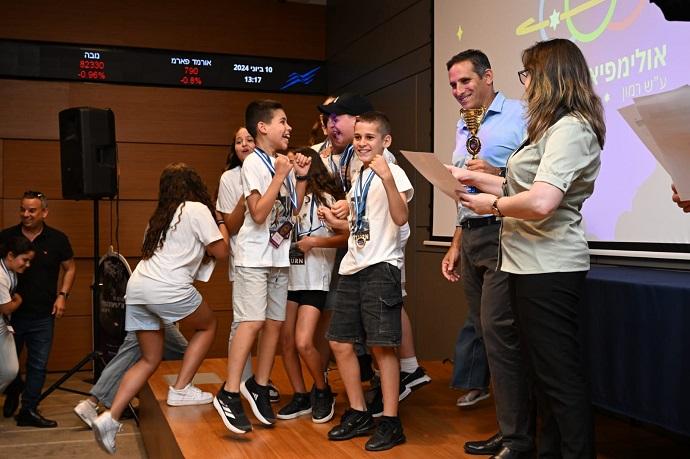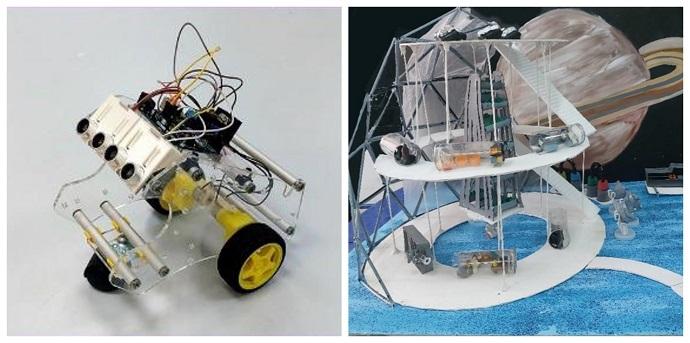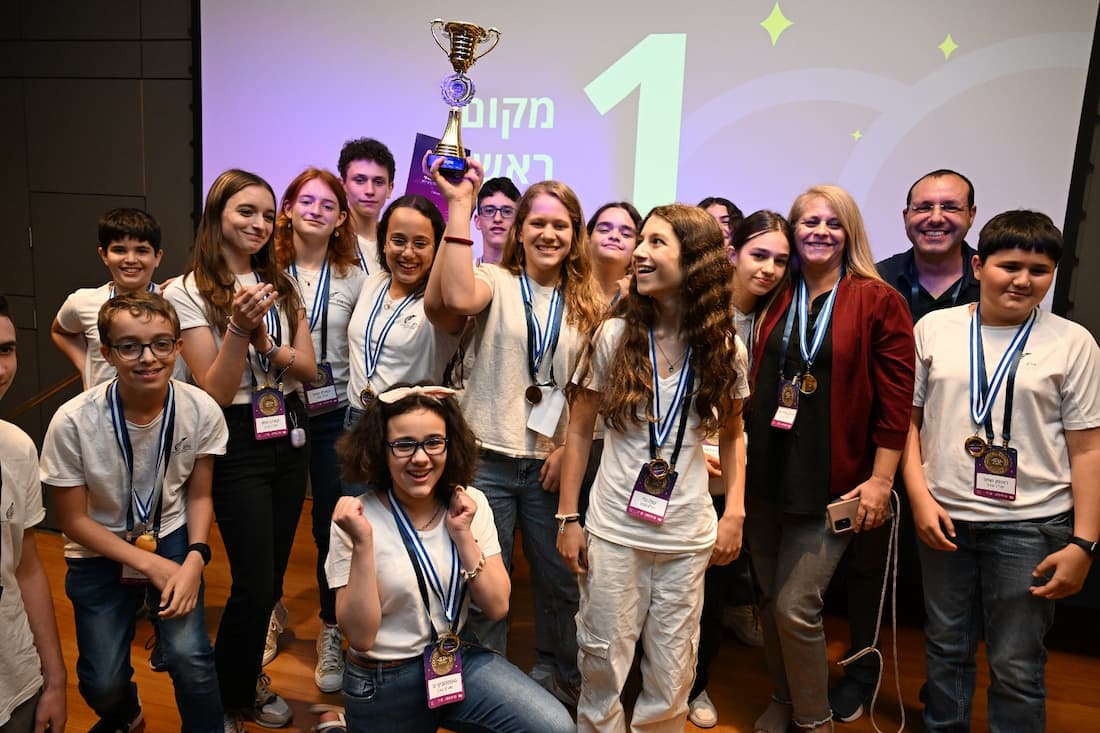Ilan Ramon elementary school students from Be'er Yaakov and Tabib Junior High School students from Rishon LeZion are the big winners of the Space Olympics, which ended a short time ago with the participation of 500 children and teens at the Tel Aviv Stock Exchange Convention Center.
The winning team from Be’er Yaakov designed a habitat for human colonization on the planet Saturn’s moon, Enceladus. The judges were impressed by the process, led by the students, of designing and constructing the model, in which they used artificial intelligence.

The team from the Tabib Junior High School in Rishon LeZion also won the coveted prize, by designing a space vehicle specially for the dwarf planet, Ceres. The space vehicle uses a uranium isotope to generate electricity.
The Minister of Innovation, Science and Technology, Gila Gamliel, said, “The amazing journey into space, the solar system, galaxies and the entire universe ignites every imagination, and each year attracts thousands of curious students who are exposed to scientific research, learning strategies, acquaintance with the space industry, challenges in management and presentation, responsibility and perseverance. The Ministry, under my leadership, invests considerable resources in providing science education and fostering personal excellence from an early age to ensure Israel's research and technological superiority. We have been blessed with a wonderful generation of young men and women, who will lead us to new heights of national excellence and innovation”.

Solutions for Life in Space
The Space Olympics are taking place for the tenth year, and this year about 7,000 students from 348 elementary and junior high schools are taking part.
21 schools from all over the country reached the final, including students from the “HaGomeh” school in Kfar Blum and the Ben Gurion school in Netivot, who prepared their final projects under the shadow of the war, because of the persistence of the schools’ dedicated teachers, who led them throughout the project, even in those difficult months in which there were no regular studies.
In this year’s competition, the students were asked to characterize habitats on celestial bodies, alongside the design of space vehicles for use in human colonization centers in space. Among the fascinating projects presented in the competition were the design of habitats on Mars, including living areas, greenhouses for growing plants and research, units for producing energy, electricity and oxygen, and protective envelopes against environmental hazards and challenges such as radiation and extreme temperatures. Junior high school students planned and designed dedicated off-road vehicles to deal with challenges such as planetary navigation, extreme temperatures, hard landings, and energy sources.
The winners of the Space Olympics finals for junior high school students:
- First place: Tabib Junior High School, Rishon LeZion
- Second place: Ben Gurion Junior High School, Ness Ziona
- Third place: Alliance, Haifa
The winners of the Space Olympics finals for elementary school students:
- First place: Ilan Ramon, Be’er Yaakov.
- Second place: Mitzpeh Yam, Eilat
- Third place: HaYuvel, Modi’in.
- And to Kfar Blum, a special commendation as the judges’ favorites.
The Ilan Ramon Space Olympics are the flagship educational program of the Israel Space Agency at the Ministry of Innovation, Science and Technology, which works to make the field of space accessible to young people and the general public, with the aim of increasing the total number of people exposed to the field and encouraging them to take part, in the future, in the field of technology and science in general, and space in particular.
The thousands of students who participated in this year's Olympics went through four stages, during which they competed in online quizzes, were required to answer complex brainteasers, stage community activities, work together as a group, conduct classroom experiences, and design a solution for colonization in the solar system, that meets strict criteria with in-depth study. In addition, the teams constructed models of their projects - habitat or space vehicles.
Participation in the Space Olympics program provides the students with many skills: scientific research, learning strategies, acquaintance with the space industry, coping with the challenges of managing teamwork and time, community activity, conflict resolution, argumentation skills, flexibility, adaptability, presentation, languages, responsibility and perseverance.
Brigadier General (res.) Uri Oron, Director General of the Israel Space Agency, said, "The final of the Space Olympics in such a complex and difficult year is a special certificate of honor for, teachers and students. Once again, it has been proved that dealing with technology in general, and in the field of space in particular, expresses quality, creativity and innovation. The girls and boys who participated in the program constitute Israel's technological future."











